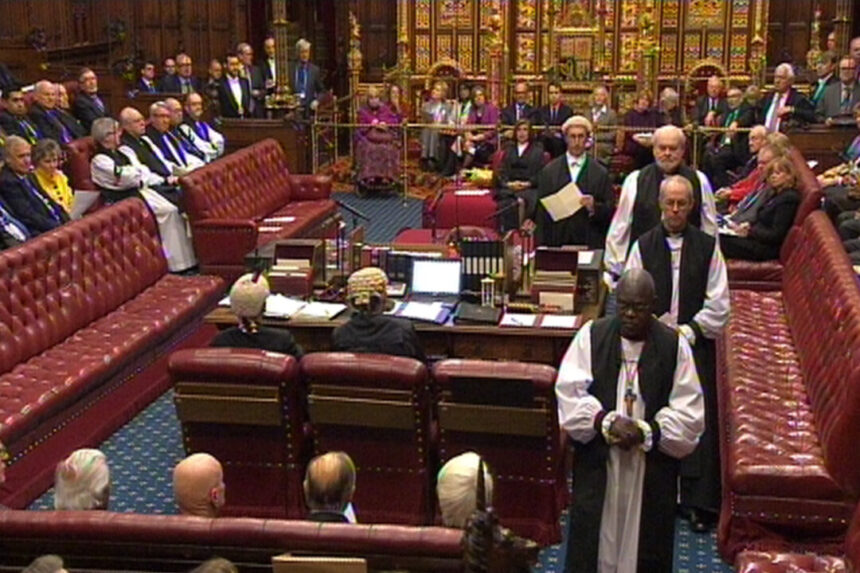The bill to eliminate hereditary peers has passed its second reading, with some Conservatives now pushing for the removal of the Lords Spiritual as well. A group of Conservative MPs has urged the Labour party to extend their reform of the House of Lords to include the 26 Church of England bishops and other hereditary members. The government’s efforts to remove the 92 hereditary peers from the 805-member upper chamber have progressed after overcoming an initial challenge from the Conservatives. However, during the debate on the bill, some opposition MPs questioned the presence of the Archbishop of Canterbury and his colleagues in the House of Lords.
Former minister Sir Gavin Williamson plans to propose an amendment to take a more radical approach in the reform. While this amendment may face challenges due to Labour’s majority, it could pose a dilemma for the prime minister and his MPs who may support removing bishops but not want to vote for a Tory amendment.
Williamson argues that the current composition of the House of Lords, with 26 bishops from the Church of England, does not represent the diversity of the UK. He highlights the lack of representation for other faiths and non-religious individuals, calling for a more inclusive approach.
The debate also raised questions about the role of the Church of England in the House of Lords and whether other Christian denominations and faiths should have a voice in the chamber. Cabinet Office minister Nick Thomas-Symonds acknowledged the need for diversity in representation but emphasized the government’s step-by-step approach to reform.
Shadow deputy prime minister Sir Oliver Dowden, who opposes the bill to remove hereditary peers, argued that the House of Lords provides essential checks and balances to the Commons. He emphasized the historical significance and traditions of the upper chamber, cautioning against hasty constitutional changes.
Dowden called for a careful and consultative approach to constitutional reform, stressing the importance of preserving the wisdom of past generations and the continuity of history and tradition. The legislation includes provisions for two hereditary peers to retain their ceremonial roles, while the remaining peers will undergo changes in their selection and voting rights. This differs from the 670 life peers, who are appointed by the monarch based on the recommendation of the prime minister or the House of Lords Appointments Commission.
As a convention, the prime minister also allows leaders of other parties to nominate life peers in order to maintain a political balance in the House of Lords. Additionally, some non-partisan life peers are nominated by the independent House of Lords Appointments Commission.
The ‘Cash for Honours’ scandal has raised concerns about the availability of life peerages to major political donors. Former Prime Minister Sir Tony Blair initiated Labour’s efforts to remove all hereditary peers from the Lords in 1999, allowing 92 to remain as a temporary compromise to pass the legislation.
Critics of the move, including Lord Strathclyde, a hereditary peer, have suggested that it would be more beneficial to remove some of the numerous life peers who do not participate in debates or votes.
An amendment proposed by Dowden to block the bill was rejected by a vote of 453 to 105. The bill has proceeded to its second reading and will undergo further examination during the committee stage.
Source link





